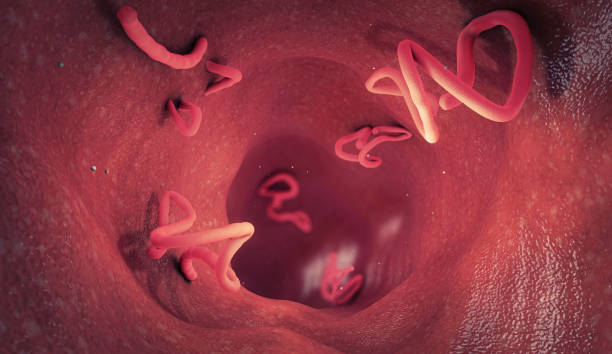Worms in humans, also known as intestinal parasites, can cause a variety of symptoms and health issues. These parasites can be contracted through contaminated food or water, poor hygiene, and contact with infected individuals or animals. In this article, we will discuss the symptoms of worms in humans and the treatments available.
Symptoms of Worms in Humans
Abdominal pain and discomfort: Intestinal parasites can cause abdominal pain, bloating, and cramping as they feed on the host’s food.
Diarrhea: Some parasites produce toxins that cause diarrhea. In severe cases, the diarrhea can be bloody.
Weight loss: Intestinal parasites can reduce the absorption of nutrients, leading to weight loss.
Anemia: Some parasites, such as hookworms, feed on the host’s blood, causing anemia.
Fatigue: Intestinal parasites can cause the host to feel fatigued due to the energy the host expends trying to fight off the parasite.
Insomnia: Intestinal parasites can cause itching and discomfort at night, leading to insomnia.
Nausea: Some parasites release toxins that can cause nausea.
Appetite changes: Intestinal parasites can cause a decreased or increased appetite.
Stomach swelling: Intestinal parasites can cause the stomach to become distended and swollen.
Treatment for Worms in Humans
The treatment for worms in humans depends on the type of parasite causing the infection. Here are some common treatments for different types of worms:
Roundworms: Roundworms can be treated with the anti-parasitic drug albendazole or mebendazole.
Hookworms: Hookworms can be treated with the anti-parasitic drug albendazole or mebendazole.
Tapeworms: Tapeworms can be treated with the anti-parasitic drug niclosamide or praziquantel.
Pinworms: Pinworms can be treated with the anti-parasitic drug mebendazole or pyrantel pamoate.
Whipworms: Whipworms can be treated with the anti-parasitic drug albendazole or mebendazole.
It is important to follow the instructions provided by the doctor and take the full course of medication to effectively eliminate the parasite. In addition, it is also important to follow good hygiene practices to prevent reinfection, such as washing hands regularly, cooking meat thoroughly, and avoiding contaminated food and water.
In conclusion, worms in humans can cause a variety of symptoms and health issues. Early detection and treatment are important to prevent further health problems. If you experience any symptoms of worms, it is important to see a doctor for a proper diagnosis and treatment. Remember to practice good hygiene to prevent reinfection and maintain good health.

 Home
Home Health
Health Diet & Nutrition
Diet & Nutrition Living Well
Living Well More
More












